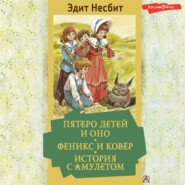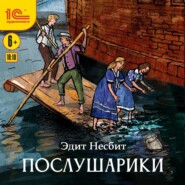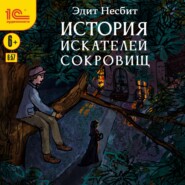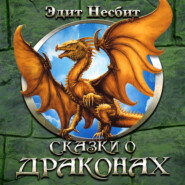По всем вопросам обращайтесь на: info@litportal.ru
(©) 2003-2024.
✖
The Incredible Honeymoon
Настройки чтения
Размер шрифта
Высота строк
Поля
"I apologize for my dog's conduct," said Edward, formally.
And then came another voice, "But, Aunt Loo, can't we do anything?"
Of course you will have known all along whose voice that would be. Edward was less discerning. He had been far too much occupied with Charles and the horse to do more than realize that the two people in the cart were women – and now when he heard again the voice that had talked to him yesterday in the freshness of the morning, the shock sent his blood surging. He looked up – face, neck, ears were burning. Men do not blush, but if they did you would have said that Mr. Basingstoke blushed in that hour.
He looked up. Holding the reins was a hard, angular woman of fifty, the sort that plays golf and billiards and is perfectly competent with horses. Beside her sat the girl, and under her white hat the crimson of her face matched his own. The distress he felt at this unpropitious coincidence deepened his color. Hers deepened, too.
"You can't do anything, thank you," he said, just a moment too late. For his pause had given the aunt time to look from one to the other.
"Oh!" she said, shortly.
The girl spoke, also just too late.
"At least, let us take the poor, dear dog home for you," she said.
"By all means," said the aunt, with an air of finality. "Where shall we leave it?"
"I am at the Five Bells, in Jevington," said Edward, and was thankful to feel his ears a shade less fiery.
"I see," said the aunt, with hideous significance. "Put it in at the back, will you?"
She spoke as though Charles were a purchase she had just made and Mr. Basingstoke the shopman.
He would have liked to refuse, but how dear of her to suggest it. "Thank you," he said, and came through the dust to the back of the cart.
Almost before he had replaced the second pin the cart moved, and he was left alone in the white road.
The way home was long and dismal – its only incident the finding of a little white handkerchief in the dust about a mile from the scene of the tragedy. It was softly scented. Of course it might be Aunt Loo's handkerchief, but he preferred to think that it was Hers. He shook the dust from it and put it in his pocket. As he came down the village street he remembered how, only yesterday, he had heard, just here by the saddler's, that strangled, choking bark which betokened Charles's recognition of his master's approach. Well, there would be no such barking welcome for him now.
Some other dog was choking and barking, though, and in that very stable where Charles had choked and barked. And Charles's body would have been put in the stable, no doubt. He would go round and see. He went round, opened the stable door, and next moment was struck full in the chest by what seemed to be a heavy missive hurled with tremendous force. It was Charles, who had leaped from the end of his chain to greet his master – Charles, alive and almost idiotic in his transports of uncouth affection. Edward felt the dog all over – to see if any bones were broken. Charles never winced. There was not a cut or a bruise on him! The two sat on the straw embracing for quite a long time.
"Yes, sir, seems quite himself, don't he?" said Robert. "Miss Davenant she brought him. Told me to tell you the dog come to himself quite sudden on the cart. Must have fainted, young miss said, and when he come to it was all she could do to hold him down. He seems to have come to quite sudden and all wild-like among their legs in the bottom of the cart till miss dragged him out – nearly upset the old lady right out of the cart, coming up sudden under her knees. Awful nasty she was about it. Said the dog must have been shamming. Thank you, sir. I'll drink your health and the dog's."
"Shamming, indeed!" said Edward to himself, and resented the cruel and silly aspersion. Yet, stay, was it really quite impossible that Charles, fearing that the same punishment might visit this last exploit as had followed his earlier outrages, had really shammed, to disarm a doting master? Edward put away the thought. It was impossible.
The main thing was that Charles was alive. But, after all, was that the main thing? Now that the dog was alive it suddenly ceased to be. The main thing was that he had not seen her that morning and that he must, somehow, see her again.
Somehow. But how? This gave him food for thought.
He went into his parlor and sat down – to think. But, try as he could, there seemed no way. Of course he could go next morning – of course he would go next morning – and every morning for a week. But if she hadn't come to-day, why should she come to-morrow or the next day, or the day after that?
Or the handkerchief. Wouldn't it be natural that he should call to return it and to thank them for taking care of the lifeless Charles, and apologize for that thoughtless animal's inconvenient and sudden change of attitude? Yes, that would have been natural if the girl had not blushed and if he had not turned scarlet.
He took out the handkerchief and spread it on the table – what silly little things girls' handkerchiefs were! Then he looked at it more closely. Then he took it to the window, stretched it tightly, and looked more closely than ever. Yes, there was something on it, something intended – not just the marks of the road. There were letters – pencil letters an inch or more long, very rough and straggling, but quite unmistakable —Ce soir 12 heures. At least, it might be 13, but, then, she wasn't an Italian.
The light of life blazed up, and the world suddenly became beautiful again. She had not forgotten – she had wished to come to meet him – something had prevented her coming in the morning. But to-night she would come. Twelve o'clock! A strange hour to choose. Bah! who was he to cavil at the hour she chose to set? How sweet and soft the handkerchief was!
V
LA MANCHE
THE bolts of the back door did not creak at all when, at twenty minutes to twelve, Edward Basingstoke let himself out. Tommy always saw to the bolts, for his own purposes, with a feather and a little salad oil.
The night was sweet and dark under the trees and in among the houses. In the village no lamp gleamed at any window. Beyond the village, the starshine and dew lent a gray shimmer to field and hedge, and the road lay before him like a pale ribbon. He crossed the meadow, climbed the wall, and dropped. The earth sounded dully under his feet, and twigs crackled as he moved. There was no other sound. She was not there. He dared not light a match to see his watch's face by. Perhaps he was early. Well, he could wait. He waited. He waited and waited and waited. He listened till his ears were full of the soft rustlings and movements which go to make up the silence of country night. He strained his eyes to see some movement in the gray park dotted with black trees. But all was still. It was very dark under the trees. And through all his listening he thought, thought. Did it do to trust to impulses – to instincts? Did it do, rather, to disregard them? A gipsy woman had said to him once, "Your first thoughts are straight – give yourself time to think twice and you'll think wrong." What he had felt that morning while he waited, vainly, for her to come had taught him that, fool as he might be for his pains, the feeling that possessed him was more like the love poets talked of than he would have believed any feeling of his could be. And, after all, love at first sight was possible – was it not the theme of half the romances in the world? He felt that at this, their second meeting, he must know whether he meant to advance or to retreat. Always when he had trusted his impulse his choice had been a wise one. But was a choice necessary now? His instincts told him that it was. This midnight meeting – planned by her and not by him – it was a meeting for "good-by." No girl would make an assignation at that hour just to tell a man that she intended to meet him again the next day. So he must know whether he meant to permit himself to be said good-by to. And he knew that he did not.
The day had been long, but it seemed to him that already the night had been longer than the day. Could he have mistaken the hour? No, it was certainly twelve – or thirteen. Then his heart leaped up. If it had been thirteen, that meant one o'clock. Perhaps it was not one yet. But he felt that he knew it to be at least three. Yet if it were three there would be the diffused faint illumination of dawn growing, growing. And there was no light at all but the changeless light of the stars. Again and again he thought he saw her, thought he heard her. And again and again only silence and solitude came to meet his thoughts.
When at last she did come he saw her very far off, and heard the rustle of her dress even before he saw her.
He would not go to meet her across the starlit space; that would be very dangerous. He stood where he was till she came into the shadow. Then he went toward her and said:
"At last!"
She drew a long breath. "Oh, I was so afraid you wouldn't come!"
"I was here at twelve," he said.
"So you got the handkerchief. I put thirteen because I thought if I put one – it was so difficult to write – and, of course, I couldn't look at it to see if it was readable. I wrote it under the driving-rug. Oh, suppose you hadn't got it!"
"I can't suppose it. What should I have done if I hadn't?"
"Oh," she said, "don't! Please don't. I thought you'd understand it was serious. I shouldn't have asked you to come in the middle of the night to talk nonsense as if we were at a dance."
"What's serious?" he said.
She said, "Everything," and her voice trembled.
He took her arm, and felt that she herself was trembling.
"Come and sit down," he said, comfortably, as one might speak to a child in trouble. "Come and sit down and tell me all about it."
They sat down on the log, and he pulled the dark cloak she wore more closely round her.
"Now," he said, "what's happened? Why didn't you come this morning?"
"I stayed too long the first time," she answered, "and met Aunt Loo as I went in. She asked me where I'd been. I said I'd been out to swim in the lake. That was quite true. That was why I had gone out. I've often done it. But, of course, my hair wasn't wet. She didn't say anything. But this morning when I came down she was sitting in the hall, waiting for me. She asked me if I was going bathing again, and I said, No, I was going to walk in the park. So she said, 'Charming idea. I'll come, too.'"
"And what did you say?"
"I said, 'Do,' of course. But it was awful. I was so afraid of her seeing you."
"Suppose she had chosen to walk that way."
"Yes, of course I thought of that. So I led the way and walked straight toward you. Then she thought whoever I was going to meet must be the other way. So she insisted on going the other way. I knew she would."
"That was subtle of you."
"No; it's only that she's stupid. It wouldn't have taken any one else in."
And then came another voice, "But, Aunt Loo, can't we do anything?"
Of course you will have known all along whose voice that would be. Edward was less discerning. He had been far too much occupied with Charles and the horse to do more than realize that the two people in the cart were women – and now when he heard again the voice that had talked to him yesterday in the freshness of the morning, the shock sent his blood surging. He looked up – face, neck, ears were burning. Men do not blush, but if they did you would have said that Mr. Basingstoke blushed in that hour.
He looked up. Holding the reins was a hard, angular woman of fifty, the sort that plays golf and billiards and is perfectly competent with horses. Beside her sat the girl, and under her white hat the crimson of her face matched his own. The distress he felt at this unpropitious coincidence deepened his color. Hers deepened, too.
"You can't do anything, thank you," he said, just a moment too late. For his pause had given the aunt time to look from one to the other.
"Oh!" she said, shortly.
The girl spoke, also just too late.
"At least, let us take the poor, dear dog home for you," she said.
"By all means," said the aunt, with an air of finality. "Where shall we leave it?"
"I am at the Five Bells, in Jevington," said Edward, and was thankful to feel his ears a shade less fiery.
"I see," said the aunt, with hideous significance. "Put it in at the back, will you?"
She spoke as though Charles were a purchase she had just made and Mr. Basingstoke the shopman.
He would have liked to refuse, but how dear of her to suggest it. "Thank you," he said, and came through the dust to the back of the cart.
Almost before he had replaced the second pin the cart moved, and he was left alone in the white road.
The way home was long and dismal – its only incident the finding of a little white handkerchief in the dust about a mile from the scene of the tragedy. It was softly scented. Of course it might be Aunt Loo's handkerchief, but he preferred to think that it was Hers. He shook the dust from it and put it in his pocket. As he came down the village street he remembered how, only yesterday, he had heard, just here by the saddler's, that strangled, choking bark which betokened Charles's recognition of his master's approach. Well, there would be no such barking welcome for him now.
Some other dog was choking and barking, though, and in that very stable where Charles had choked and barked. And Charles's body would have been put in the stable, no doubt. He would go round and see. He went round, opened the stable door, and next moment was struck full in the chest by what seemed to be a heavy missive hurled with tremendous force. It was Charles, who had leaped from the end of his chain to greet his master – Charles, alive and almost idiotic in his transports of uncouth affection. Edward felt the dog all over – to see if any bones were broken. Charles never winced. There was not a cut or a bruise on him! The two sat on the straw embracing for quite a long time.
"Yes, sir, seems quite himself, don't he?" said Robert. "Miss Davenant she brought him. Told me to tell you the dog come to himself quite sudden on the cart. Must have fainted, young miss said, and when he come to it was all she could do to hold him down. He seems to have come to quite sudden and all wild-like among their legs in the bottom of the cart till miss dragged him out – nearly upset the old lady right out of the cart, coming up sudden under her knees. Awful nasty she was about it. Said the dog must have been shamming. Thank you, sir. I'll drink your health and the dog's."
"Shamming, indeed!" said Edward to himself, and resented the cruel and silly aspersion. Yet, stay, was it really quite impossible that Charles, fearing that the same punishment might visit this last exploit as had followed his earlier outrages, had really shammed, to disarm a doting master? Edward put away the thought. It was impossible.
The main thing was that Charles was alive. But, after all, was that the main thing? Now that the dog was alive it suddenly ceased to be. The main thing was that he had not seen her that morning and that he must, somehow, see her again.
Somehow. But how? This gave him food for thought.
He went into his parlor and sat down – to think. But, try as he could, there seemed no way. Of course he could go next morning – of course he would go next morning – and every morning for a week. But if she hadn't come to-day, why should she come to-morrow or the next day, or the day after that?
Or the handkerchief. Wouldn't it be natural that he should call to return it and to thank them for taking care of the lifeless Charles, and apologize for that thoughtless animal's inconvenient and sudden change of attitude? Yes, that would have been natural if the girl had not blushed and if he had not turned scarlet.
He took out the handkerchief and spread it on the table – what silly little things girls' handkerchiefs were! Then he looked at it more closely. Then he took it to the window, stretched it tightly, and looked more closely than ever. Yes, there was something on it, something intended – not just the marks of the road. There were letters – pencil letters an inch or more long, very rough and straggling, but quite unmistakable —Ce soir 12 heures. At least, it might be 13, but, then, she wasn't an Italian.
The light of life blazed up, and the world suddenly became beautiful again. She had not forgotten – she had wished to come to meet him – something had prevented her coming in the morning. But to-night she would come. Twelve o'clock! A strange hour to choose. Bah! who was he to cavil at the hour she chose to set? How sweet and soft the handkerchief was!
V
LA MANCHE
THE bolts of the back door did not creak at all when, at twenty minutes to twelve, Edward Basingstoke let himself out. Tommy always saw to the bolts, for his own purposes, with a feather and a little salad oil.
The night was sweet and dark under the trees and in among the houses. In the village no lamp gleamed at any window. Beyond the village, the starshine and dew lent a gray shimmer to field and hedge, and the road lay before him like a pale ribbon. He crossed the meadow, climbed the wall, and dropped. The earth sounded dully under his feet, and twigs crackled as he moved. There was no other sound. She was not there. He dared not light a match to see his watch's face by. Perhaps he was early. Well, he could wait. He waited. He waited and waited and waited. He listened till his ears were full of the soft rustlings and movements which go to make up the silence of country night. He strained his eyes to see some movement in the gray park dotted with black trees. But all was still. It was very dark under the trees. And through all his listening he thought, thought. Did it do to trust to impulses – to instincts? Did it do, rather, to disregard them? A gipsy woman had said to him once, "Your first thoughts are straight – give yourself time to think twice and you'll think wrong." What he had felt that morning while he waited, vainly, for her to come had taught him that, fool as he might be for his pains, the feeling that possessed him was more like the love poets talked of than he would have believed any feeling of his could be. And, after all, love at first sight was possible – was it not the theme of half the romances in the world? He felt that at this, their second meeting, he must know whether he meant to advance or to retreat. Always when he had trusted his impulse his choice had been a wise one. But was a choice necessary now? His instincts told him that it was. This midnight meeting – planned by her and not by him – it was a meeting for "good-by." No girl would make an assignation at that hour just to tell a man that she intended to meet him again the next day. So he must know whether he meant to permit himself to be said good-by to. And he knew that he did not.
The day had been long, but it seemed to him that already the night had been longer than the day. Could he have mistaken the hour? No, it was certainly twelve – or thirteen. Then his heart leaped up. If it had been thirteen, that meant one o'clock. Perhaps it was not one yet. But he felt that he knew it to be at least three. Yet if it were three there would be the diffused faint illumination of dawn growing, growing. And there was no light at all but the changeless light of the stars. Again and again he thought he saw her, thought he heard her. And again and again only silence and solitude came to meet his thoughts.
When at last she did come he saw her very far off, and heard the rustle of her dress even before he saw her.
He would not go to meet her across the starlit space; that would be very dangerous. He stood where he was till she came into the shadow. Then he went toward her and said:
"At last!"
She drew a long breath. "Oh, I was so afraid you wouldn't come!"
"I was here at twelve," he said.
"So you got the handkerchief. I put thirteen because I thought if I put one – it was so difficult to write – and, of course, I couldn't look at it to see if it was readable. I wrote it under the driving-rug. Oh, suppose you hadn't got it!"
"I can't suppose it. What should I have done if I hadn't?"
"Oh," she said, "don't! Please don't. I thought you'd understand it was serious. I shouldn't have asked you to come in the middle of the night to talk nonsense as if we were at a dance."
"What's serious?" he said.
She said, "Everything," and her voice trembled.
He took her arm, and felt that she herself was trembling.
"Come and sit down," he said, comfortably, as one might speak to a child in trouble. "Come and sit down and tell me all about it."
They sat down on the log, and he pulled the dark cloak she wore more closely round her.
"Now," he said, "what's happened? Why didn't you come this morning?"
"I stayed too long the first time," she answered, "and met Aunt Loo as I went in. She asked me where I'd been. I said I'd been out to swim in the lake. That was quite true. That was why I had gone out. I've often done it. But, of course, my hair wasn't wet. She didn't say anything. But this morning when I came down she was sitting in the hall, waiting for me. She asked me if I was going bathing again, and I said, No, I was going to walk in the park. So she said, 'Charming idea. I'll come, too.'"
"And what did you say?"
"I said, 'Do,' of course. But it was awful. I was so afraid of her seeing you."
"Suppose she had chosen to walk that way."
"Yes, of course I thought of that. So I led the way and walked straight toward you. Then she thought whoever I was going to meet must be the other way. So she insisted on going the other way. I knew she would."
"That was subtle of you."
"No; it's only that she's stupid. It wouldn't have taken any one else in."

















